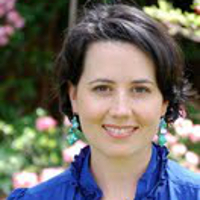July 1, 2017 – – NEW ORLEANS —
PurBlood stocks took a tumble today after tepid sales during the second quarter and amid criticism of vampire elitism, falling $1.45 to close the day at $24.67 per share. Anthony Baker, blood activist and head of the non-profit organization Blood Equality, released this statement: “The very name PurBlood implies there is something wrong with the blood of some of us humans. We demand equal vampire treatment for all humans, regardless of what we eat, what we’ve been exposed to, what drugs we take, or what we’ve been doing for the last thirty years.”
PurBlood spokesman Alexandar Conquel vigorously denied charges of enabling discrimination. “The PurBlood concept is that vampires can now accept donations from any consensual human donor, regardless of how polluted their blood may be. The PurBlood filter removes over 15,000 toxic chemicals from blood donations, including heavy metals, legal and illegal drugs, and even excessive cholesterol. It is an effective way to achieve blood that smells and tastes good, while eliminating the chemical additives inherent in modern human blood.”
Some vampires credit the PurBlood filter with increasing their health and energy. London vampire Claudia van Huston says, “For decades, blood just tasted worse and worse and my energy level dropped to like, zero. Americans started to taste like McDonald’s hamburgers left out in the car for a few days – with a side of ashtray. But now, it’s like drinking blood from the Amish! I haven’t felt this good since 1920. And my skin looks great.”
Others report that the filter isn’t worth the trouble. “With some vamps, the PurBlood filter is popular,” reports 140-year old vampire Caroline Chamberlin. “I just can’t stand it, though. Takes all the fun out of drinking, like drinking baby food, or a nutritional shake.” She confides, “Plus, the blood donors don’t like it either. A needle, hose, and blood bag is just not as intimate as a bite.”
Some vampires who enjoy drinking in public have had difficulty adjusting to the PurBlood process. Nicholas Pellican, author of Tainted Blood: You’ve got to run away, shared his tips for vampires eating on-the-go. “Vampires don’t have to go to Boulder, CO, to enjoy a night out on the town. I mean, a little tainted blood is not going to kill anyone. I just tell my readers, hey, when you get someone with bad blood, you can stop. You don’t have to keep sucking to be polite. Thank them politely and just walk away.”
The PurBlood filters also face stiff competition from the popular Blood Detective kit. Mattias Sandia, a Mexican vampire, uses the kit, which includes a health intake survey and a blood evaluation test that can be mailed off for an analysis, guaranteed to return in one day, or your kit is free. “Yeah, it takes a little bit of the spontaneity out of the whole process,” says Mr. Sandia. “But these days, you have to be careful. I mean, really bloody careful.”
Many vampires believe that these commercial products don’t address the root of the crisis. Some groups, such as the Sanguine Conservancy, encourage humans to live together with the vampires as partners in green communities. Conservancy members live “off the grid” far from power plants and industrial manufacturing, grow organic food for their human blood-donors, and avoid products containing parabens, BPA, and other common chemicals. In exchange for enduring a thorough de-tox and adopting an eco-friendly lifestyle, human partners receive stipends, completely expense-free living, and guaranteed retirement.
Sanguine Conservancy spokesvampire Jessica Houston asserts that their approach is more beneficial for humans than a simple filtration product. “Essentially, we are helping humans reduce their body burden from what we call the “Toxic Trifecta:” toxic environment, toxic food and toxic lifestyle. Not only does this make you tastier, but also less prone to health problems, sickness and disease.”
However, a powerful and well-funded new lobbying group, the Vampire Alliance for a Healthy Blood Supply, argues that lifestyle adjustments are not enough to protect humans from contamination. Robert Miller, head of the VAHBS, says “We are calling for strict regulatation of all new and existing man-made chemicals, especially the chemicals allowed in food and body products, and a clean-up of the toxic residues in the air, water, and soil. It’s not only about what’s good for us. After all, it’s your blood, too.”
PurBlood CEO Brendan Waters supports the proposed VAHBS regulation, but doubts that it will ever pass. “Legislators didn’t regulate these extremely profitable toxins when child cancer rates increased. They didn’t regulate them when the human breast milk studies came out, proving that mothers were passing on the poisons in their own bodies to their babies. If vampires think that Congress cares about their health, they’ve got another think coming. Then again, vampires do have the accumulated wealth of five thousand years. If anyone can make this happen through sheer brute force campaign donations, it’s them.”






